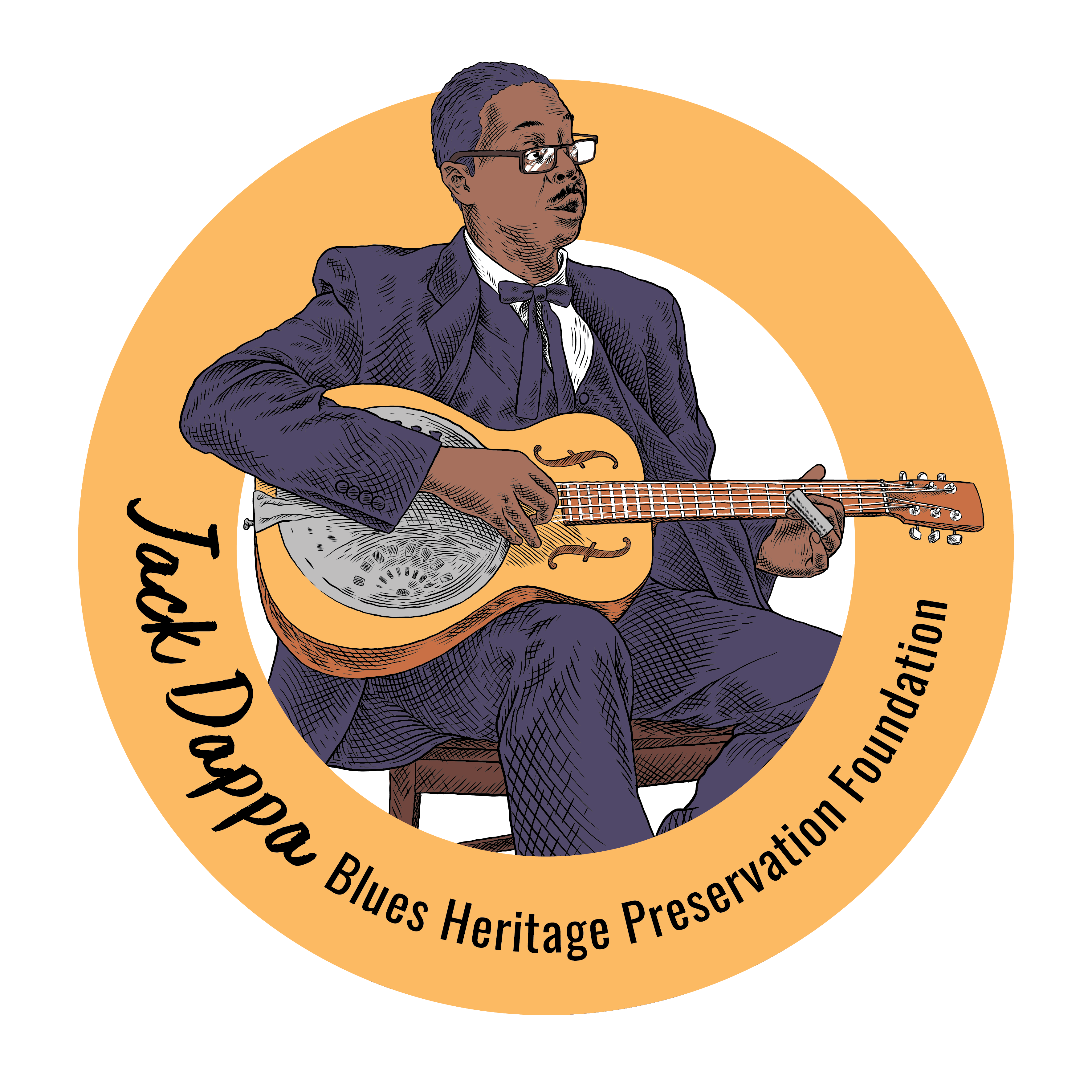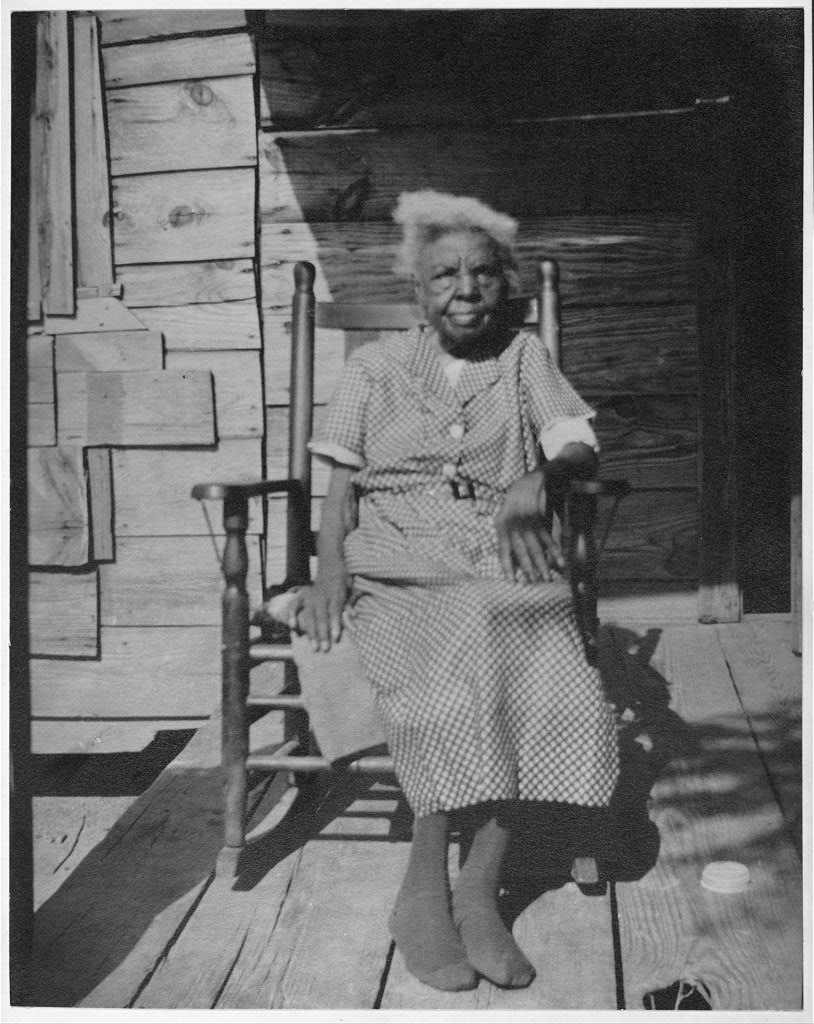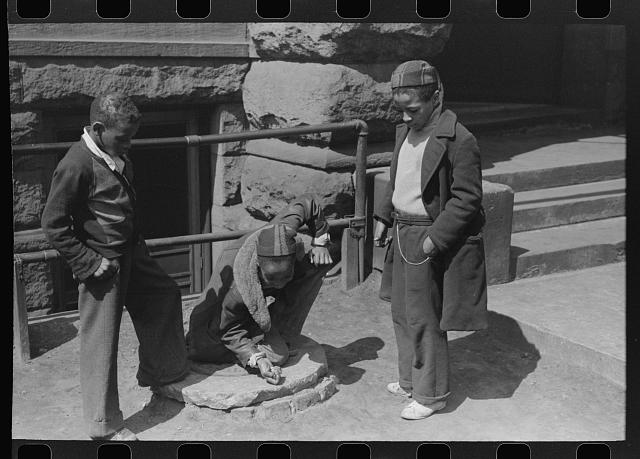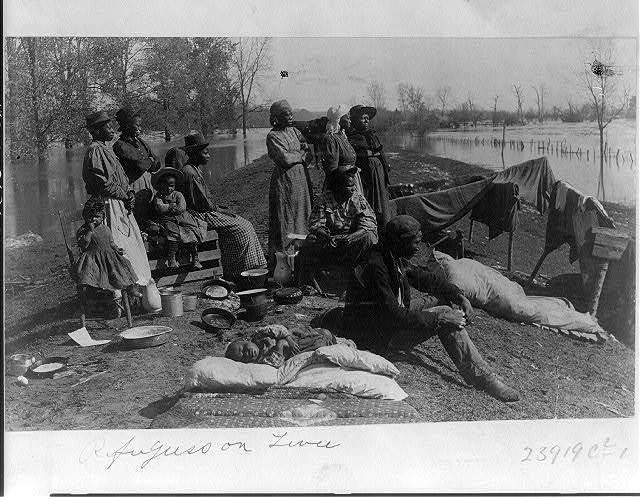Published By:
Lamont Jack Pearley
30380
Interviewer Mrs* Zillah Cross Peel
Person interviewed Aunt Adeline — Age 89
Home 101 Hock Street* Fayetteville. Arkansas
*I was born a slave about 1848, in Hickmon County, Tennessee,*
said Aunt Adeline who lives as care taker in a house at 101 Rock
Street, Faystteville, Arkansas, which is owned by the Blakely-Budgens
estate.
Aunt Adeline has been a slave and a servant in five generations
of the Parks family* Her mother, Liza, with a group of five
Negroes, was sold into slavery to John P. A. Parks, in Tennessee, about
1840.
When my mother1 s master came to Arkansas about 1849 looking for
a country residence, he bought what was known as the old Kidd place
on the Old Wire Road, -which was one of the Stage Coach stops. I was
about one year old when we came* We had a big house and many times
passengers would stay several days and wait for the next stage to come
by. It was then that I earned my first money. I must have been about
six or seven years old. One of Mr* Parks
daughters was about one and
a half years older than I was* We had a play house back of the fireplace
chimney* We didn’t have many toys; maybe a doll made of a corn
cob, with a dress made from scraps and a head made from a roll of
scraps. We were playing church. Miss Fannie was the preacher and I
was the audience. We were singing “Jesus my all to Heaven is gone*
Then we were half way through with our song we discovered that the
passengers from the stage coach had stopped to listen# We were so
frightened at our audience that we both ran* But we were coaxed to
come back for a dime and sing our song over* I remember that Miss
Fannie used a big leaf for a books
“I had always been told from the time I was a small child that I
was a Negro of African stock* That it was no disgrace to be a Negro
and had it not been for the white folks who brought us over here from
Africa as slaves, we would never have been here and would have been much
better off*
“We colored folks were not allowed to be taught to read or write*
It was against the law* My master’s folks always treated me well* I
had good clothes* Sometimes I was whipped for things I should not have
done just as the white children were*
When a young girl was married her parents would always give her
a slave* I was given by my master to his daughter. Miss Elizabeth*
who married Mr* Blakely* I was just five years old* She moved into
a new home at Fayetteville and I was taken along but she soon sent me
back home to my master telling him that I was too little and not enough
help to her* So I went back to the Parks home and stayed until I was
over seven years old* *My master made a bill of sale for me to his
daughter, in order to keep account of all settlements, so when he died
and the estate settled each child would know how he stood
*Ehla statement can be verified by the will made by John P. A. Parks,
and filed in Probate Court in the clerk’s office in Washington County*
“I was about 15 years old when the Civil War ended and was still
living with Mrs* Blakely and helped care for her little children* Her
daughter Miss Lonora, later married H. M. Hudgens, and I then went to
live with her and cared for her children* When her daughter Hiss Helen
married Professor Wiggins, I took care of her little daughter, and this
made five generations that I have cared for*
“During the Civil War, Mr* Parks took all his slaves and all of
his fine stock, horses and cattle and went South to Louisiana following
the Southern army for protection* Many slave owners left the
county taking with them their slaves and followed the army*
“When the war was over, Mr. Barks was still in the South and gave
to each one of his slaves who did not want to come back to Arkansas so
much money* My uncle George came back with Mr* Parks and was given a
good mountain farm of forty acres, which he put in cultivation and one
of my uncle’s descendants still lives on the place* My mother did not
return to Arkansas but went on to Joplin, Missouri, and for more than
fifty years, neither one of us knew where the other one was until one
day a man from Feyetteville went into a restaurant in Joplin and ordered
his breakfast, and my mother who was in there heard him say he lived in
Fayetteville, Arkansas* He lived just below the Hudgens home and when
my mother enquired about the family he told her I was still alive and
was with the family* While neither of us could read nor write we corresponded
through different people* But I never saw her after I was
eleven years old* Later Mr* Hudgens went to Joplin to see if she was
well taken care of* She owned her own little place and when she died
there was enough money for her to be buried*
“Civil War days are vivid to me* The Courthouse which was then
In the middle of the Square was burned one night by a crazy Confederate
soldier* The old men in the town saved him and then put him in
the county jail to keep him from burning other houses * Each family
was to take food to him and they furnished bedding. The morning I was
to take his breakfast he had ripped open his feather bed and crawled
inside to get warm* The room was so full of feathers when I got there
that his food nearly choked him* I had carried him ham, hot biscuits and
a pot of coffee*
“After the War many soldiers came to my mistress, Mrs. Blakely,
trying to make her free me* I told them I was free but I did not want
to go anywhere, that I wanted to stay in the only home that I had ever
known* In a way that placed me in a wrong attitude* I was pointed out as
different* Sometimes I was threatened for not leaving but I stayed on*
“I had always been well treated by my master1s folks* While we
lived at the old Kidd place, there was a church a few miles from our
home* My uncle George was coachman and drove my masters family in
great splendor in a fine barouche to church* After the war, when he
went to his own place, Mr* Parks gave him the old carriage and bought
a new one for the family.
“I can remember the days of slavery as happy ones* We always had
an abundance of food* Old Aunt Martha cooked and there was always
plenty prepared for all the white folks as well as the colored folks*
There was a long table at the end of the big kitchen for the colored
folks* The vegetables were all prepared of an evening by Aunt Martha
with someone to help her*
My mother seemed to have a gift of telling fortunes* She had a
brass ring about the size of a dollar with a handwoven knotted string
that she used* I remember that she told many of the young people in
the neighborhood many strange things* They would come to her with
their premonitions*
*Yes we were afraid of the payroles All colored folks were*
They said that any Negroes that were caught away from their master* a
premises without a permit would be whipped by the payroles* They used
to sing a song:
‘Run nigger run
The payroles
Will get you
“Yes’m, the War separated lots of families* Mr* Parks’ son, John
Parks enlisted in Colonel W. H. Brooks
regiment at Fayetteville as
third lieutenant* Mr. Jim Parks was killed at the Battle of Gettysburg.
*I do remember it was my mistress, Mrs* Blakely, who kept the
Masonic Building from being burned* The soldiers came to set it on
fire* Mrs* Blakely knew that if it burned, our home would burn as it
was just across the street* Mrs* Blakely had two small children who
were very ill in upstairs rooms. She told the soldiers if they burned
the Masonic Building that her house would burn and she would be unable
to save her little children* They went away*”
While Aunt Adeline is nearlng ninety, she is still active* goes
shopping and also tends to the many crepe myrtle bushes as well as
many other flowers at the Hudgens place*
She attends to the renting of the apartment house, as caretaker,
and is taken care of by members of the Blakely-Hudgens families*
Aunt Adeline talks “white folks language,* as they say, and seldom
associates with the colored people of the town*




